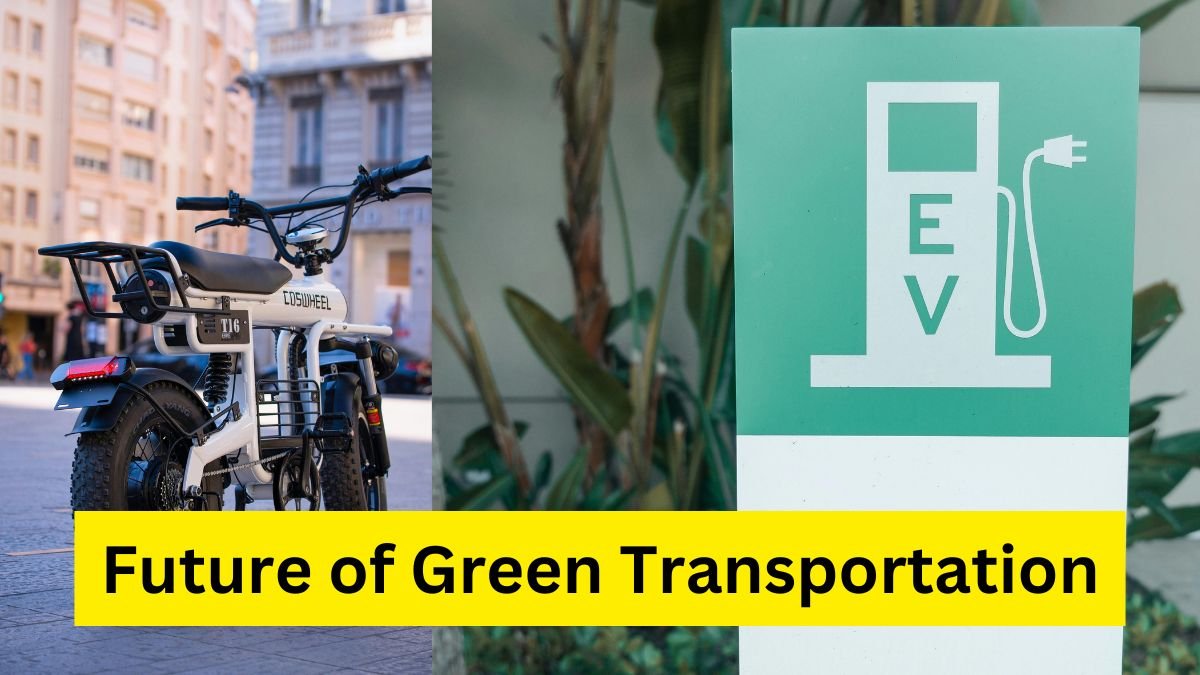As climate change becomes a pressing issue, more people are asking the same question. The answer lies in green transportation, especially in the rise of electric vehicles (EVs). The world is shifting towards more sustainable practices, and the automotive industry is at the forefront of this change.
Electric Vehicles and Sustainability
So, what exactly are electric vehicles, and why are they considered the future of transportation? Electric vehicles, commonly known as EVs, are cars that run on electricity instead of traditional gasoline. They offer a cleaner, more sustainable way to get from point A to point B.
Environmental Benefits of EVs
The most significant advantage of EVs is their environmental impact. Unlike traditional vehicles, which rely on fossil fuels and emit harmful gases, EVs produce zero tailpipe emissions. This pollution reduction is crucial in the fight against global warming.
| Challenges in EV Adoption |
| The road to widespread EV adoption isn’t without its bumps. High costs, limited charging infrastructure, and range anxiety worrying about the car’s battery running out are just a few of the hurdles that need to be overcome. |
EVs and Emission Reduction for Green Transportation
How EVs Contribute to Lower Emissions
One of the primary reasons why EVs are championed as a green alternative is their ability to reduce emissions. Traditional vehicles burn fossil fuels, releasing carbon dioxide (CO2) into the atmosphere.
| Comparative Analysis: EVs vs. Traditional Vehicles |
| When you compare EVs to traditional vehicles, the difference in emission levels is staggering. For instance, an average gasoline-powered car emits about 4.6 metric tons of CO2 per year, while an EV powered by renewable energy can virtually eliminate these emissions. |
The Role of Renewable Energy in Maximizing Emission Reduction about Green Transportation
The true potential of EVs in reducing emissions is fully realized when they’re powered by renewable energy. Imagine a future where your car is charged by solar panels on your roof now that’s sustainability in action!
Green Transportation Technology
Innovations in EV Technology
The technology behind EVs is evolving rapidly. Advances in battery technology, such as solid-state batteries, promise longer ranges and faster charging times, making EVs more convenient and appealing.
Battery Advancements and Sustainability
Batteries are the heart of EVs, and their sustainability is crucial. Recent developments in battery recycling and the use of less environmentally damaging materials are helping to make EVs even greener.
Charging Infrastructure and Its Impact on Sustainability
With more charging stations popping up, especially fast-charging ones, the convenience of owning an EV is increasing. This infrastructure is also becoming more sustainable, with some stations powered entirely by renewable energy.
Sustainable Automotive Trends
Trends Shaping the Future of EVs
The automotive industry is buzzing with innovations that are pushing the boundaries of what’s possible with EVs. From improved battery life to enhanced vehicle connectivity, the future of EVs looks bright.
| The Rise of Autonomous Electric Vehicles | Self-driving cars aren’t just a sci-fi fantasy anymore they’re becoming a reality. Autonomous electric vehicles are expected to reduce traffic congestion and accidents, making our roads safer and more efficient. |
| Shared Mobility and Its Role in Sustainability | Car-sharing and ride-hailing services reduce the number of vehicles on the road, which in turn lowers overall emissions. This trend is particularly impactful in urban areas, where traffic congestion and pollution are major concerns. |
The Future of Electric Cars
Looking ahead, it’s clear that EVs are here to stay. Experts predict that by 2030, EVs could make up a significant portion of new car sales worldwide. This shift will be driven by technological advancements, government incentives, and growing consumer awareness.
Impact of Government Policies and Incentives
Government policies play a critical role in the adoption of EVs. Many countries offer incentives such as tax rebates, subsidies, and access to carpool lanes for EV owners. These measures are designed to make EVs more affordable and appealing to consumers.
The Role of Consumer Awareness and Education
Finally, consumer awareness and education are vital for the continued growth of the EV market. As more people learn about the environmental and financial benefits of EVs, the demand for these vehicles will only increase.
Conclusion
In summary, electric vehicles are a key component of the shift towards green transportation. They offer significant environmental benefits, particularly in reducing emissions, and are supported by exciting technological advancements.
While challenges remain, such as the need for better infrastructure and affordability, the future of EVs looks promising. As consumers, we have the power to drive this change by choosing sustainable transportation options and supporting policies that promote the growth of the EV market.
What are the main advantages of electric vehicles?
Electric vehicles offer several advantages, including zero tailpipe emissions, lower operating costs, and reduced reliance on fossil fuels. They also provide a quieter and smoother driving experience compared to traditional vehicles.
How do electric vehicles reduce emissions?
EVs reduce emissions by eliminating the need to burn fossil fuels. When powered by renewable energy, they can achieve near-zero emissions, significantly lowering their environmental impact.
What is the future of electric vehicle technology?
The future of EV technology is bright, with ongoing advancements in battery life, charging speed, and vehicle connectivity. Autonomous driving features are also expected to become more prevalent, further enhancing the appeal of EVs.
Are there any disadvantages to electric vehicles?
Some of the disadvantages of EVs include higher upfront costs, limited charging infrastructure in certain areas, and concerns about battery life and range. However, these issues are being addressed through technological improvements and increased investment in infrastructure.
How can consumers contribute to the sustainability of electric vehicles?
Consumers can contribute to the sustainability of EVs by choosing renewable energy sources for charging, supporting policies that promote EV adoption, and staying informed about the latest developments in EV technology.
